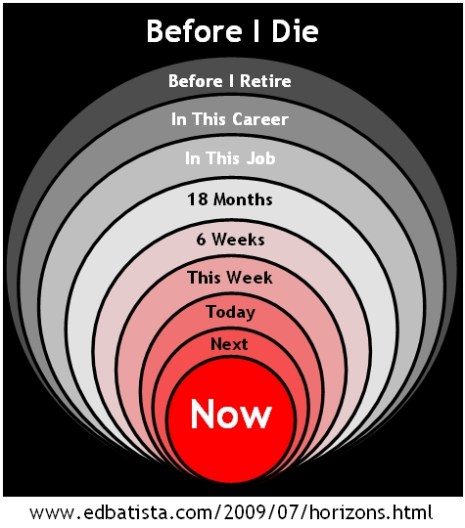(The Suffering Song by the Willard Grant Conspiracy) A great song to listen to while you read my blog today.
 I want to talk about pain and suffering. These are subjects that are not addressed in most Western schools or colleges. In fact, they are hardly even addressed in Western theology. No one gives you the real scoop on pain and suffering. They seem to be taboo subjects in Western Culture. In “On Death and Dying,” Elizabeth Kubler Ross talked about the stages of grief that we confront when faced with the loss of a loved one. This was a revolutionary book. The subject of death seems to go along with pain and suffering. However, while we now have grief counselors and bereavement counselors who are sectarian as well as secular in orientation, the medical profession seems to leave pain and suffering to the religious realm. Most pronouncements about suffering from the theological domain seem to reflect such thoughts as follows:
I want to talk about pain and suffering. These are subjects that are not addressed in most Western schools or colleges. In fact, they are hardly even addressed in Western theology. No one gives you the real scoop on pain and suffering. They seem to be taboo subjects in Western Culture. In “On Death and Dying,” Elizabeth Kubler Ross talked about the stages of grief that we confront when faced with the loss of a loved one. This was a revolutionary book. The subject of death seems to go along with pain and suffering. However, while we now have grief counselors and bereavement counselors who are sectarian as well as secular in orientation, the medical profession seems to leave pain and suffering to the religious realm. Most pronouncements about suffering from the theological domain seem to reflect such thoughts as follows:
“Suffering is no longer viewed as God’s divine lightning bolt intended to punish or curse the afflicted, but is understood as a divine context that is intended to radiate the glory of His love and mercy. As this reality crystallizes in the heart, people’s view of God changes. Where their Gospel-void interpretation once influenced their conclusion of God as the arbiter of pain as a means to justice, they now understand their pain as a means to understand His infinite grace resulting in the freedom to genuinely conclude He is truly a God that is good. They realize His mercy flourishing through suffering in that they were desperate in their weakness for the imputed righteousness of Christ, and that God was eager to offer it as a means to magnify His infinite love for them as they endure life in a fallen world.” — How the Mercy of God Flourishes in Suffering
Perhaps such sentiments help the true believers, but they do little or nothing to slake my pain. Maybe that is why Oxycodone and Percocet are more widely reached for these days than the Bible. Pious sentiments notwithstanding, when I am in pain, I want relief.
Let’s back up a minute or a mile though. If you are under thirty, you are probably asking “What is he talking about.” I understand the sentiment. Before I started to deal with pain more frequently in my life, I ignored these subjects just as I ignored the subject of aging or getting old. When you are young and healthy, why think about pain and suffering?
Here is my answer.
There are several good reasons to address these issues but the primary one concerns your ability to keep joy and happiness in your life along with the inevitable pain and suffering you are going to experience. The only question about the issue of pain is whether it will be over in a microsecond (as in a sudden heart attack or a car accident) or whether you will experience pain and suffering for many years of your life.
When I talk about pain and suffering there are three types or categories that you can experience. You can experience any of these at any time in your life but you will most likely experience them as you get older. The three areas in which we all experience pain and suffering are:
- Cognitive or mental suffering
- Emotional suffering
- Physical suffering
Mental suffering concerns the thoughts, expectations and ideas that you have about life. Pessimists suffer more in this area than optimists. People with great faith may find their faith misplaced and suffer real anguish over their doubts. The suffering and pain in this area is caused by our belief systems and how we define the world and reality. You can change your belief system but you will always have some system that is subject to challenge and disconfirmation.
[As an aside here, I hate those snake oil sales people that ask you to “Defy your age.” Check into their pitches and they will tell you that you can defy the aging process but of course it will cost you about $3000 dollars for their initial evaluation and about $1500 dollars per month thereafter in supplements. My experience is that you can accomplish the same thing with a $30 dollar per month gym membership, an annual physical and depending on your needs maybe $100 dollars a month in supplements.]
Nevertheless, hormones, weight training, body building, aerobics and boot camps are not going to prevent pain and suffering. They are not going to prevent physical or mental or emotional suffering. This is THE simple fact that needs to be repeated and understood.
The second type of pain and suffering is emotional. The death of a loved one. Unrequited love. Failure to accomplish our goals. Disappointment with your favorite football team. There are hundreds of sources out there that instill emotional pain in our lives. This was one reason that Buddhism is absolutely on the mark and addresses a subject that is seldom taught in Western culture. This is the centrality of suffering and pain in our lives from the time we are born until the time we die.
Alone among the world’s religions, Buddhism locates suffering at the heart of the world. Indeed according to Buddhism, existence is suffering (dukkha). The main question that Guatama (c.566 BC – c.480 BC), the traditional founder of Buddhism, sought to answer was: “Why do pain and suffering exist?” — Buddhism
 The third type of pain and suffering is physical. We know as we get older that we get more aches and pains. Athletes start at an early age experiencing the pain of broken bones, sprained muscles, torn ligaments and sometimes worse. Many people work in dangerous professions where the risk of physical injury is a daily part of their lives. Several diseases which cause great pain do not differentiate between old age and youth. Nevertheless, the specter of pain and suffering is much more evident for those of us who have passed sixty. Whether it is a relative who has died or a friend who has died in a car accident, it hardly seems that a week goes by without someone either Karen or I knows who is now in the hospital or morgue.
The third type of pain and suffering is physical. We know as we get older that we get more aches and pains. Athletes start at an early age experiencing the pain of broken bones, sprained muscles, torn ligaments and sometimes worse. Many people work in dangerous professions where the risk of physical injury is a daily part of their lives. Several diseases which cause great pain do not differentiate between old age and youth. Nevertheless, the specter of pain and suffering is much more evident for those of us who have passed sixty. Whether it is a relative who has died or a friend who has died in a car accident, it hardly seems that a week goes by without someone either Karen or I knows who is now in the hospital or morgue.
While I don’t want to belabor the point. I had surgery to have my prostate removed over a year ago now and then subsequently (perhaps because of the weakened tissue), I had to go in for hernia surgery. Both of these were very painful but nowhere near as painful as the infection I had from a tooth implant which for some reason my body rejected. Thus, for the past two years, I have had an uncomfortable level of pain and suffering on a daily basis. I have also watched my lover and best friend get more aches and pains as each day goes by.
There are those who describe “old age” in glowing terms: “Sageing not Aging”, “Growing old like a fine vintage wine” or “Positive Aging.” There are dozens of books out there touting us to grow older and wiser or older and more graceful or older and more fulfilled. There are a growing number of books promoting the new theory of “anti-aging.” If these pundits are trying to put a shine or marketing spin on growing old, they are doing us a grave disservice.
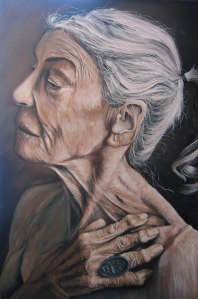 Aging is not a positive experience nor is it fun or painless. Aging is a process of gradually losing both mental and physical capabilities. At
Aging is not a positive experience nor is it fun or painless. Aging is a process of gradually losing both mental and physical capabilities. At  some point in the aging process, you will experience increasing levels of pain and suffering. You will not become a fine wine but more likely will be like an overripe orange or an overripe banana. You will become shrunken and shriveled. Your body will ache more in the mornings and after moderate exercise and just before you go to bed. Physical infirmities that once took only a day to recover from will now takes weeks, assuming you will ever recover from them. You will suffer increasing cognitive decline as you become more forgetful and you will eventually experience some degree of dementia or worse Alzheimer’s disease. You will suffer emotional pain as your friends and loved ones depart the earth before you do. Karen and I have now set up a funeral budget to cover donations and costs associated with deaths that are becoming a routine part of our lives.
some point in the aging process, you will experience increasing levels of pain and suffering. You will not become a fine wine but more likely will be like an overripe orange or an overripe banana. You will become shrunken and shriveled. Your body will ache more in the mornings and after moderate exercise and just before you go to bed. Physical infirmities that once took only a day to recover from will now takes weeks, assuming you will ever recover from them. You will suffer increasing cognitive decline as you become more forgetful and you will eventually experience some degree of dementia or worse Alzheimer’s disease. You will suffer emotional pain as your friends and loved ones depart the earth before you do. Karen and I have now set up a funeral budget to cover donations and costs associated with deaths that are becoming a routine part of our lives.
Please accept what I have said as the truth. The truth will liberate you. Only the truth here will set you free. By accepting the truth about aging, you will be free to find the joy and happiness that perhaps you have never found in your life. By accepting death, you can liberate yourself from fear and worry. My Aunt Mary Leone will be 101 this coming year. She had a wonderful 100th birthday party last year. She was recently asked “How old do you feel?” She replied: “I only feel about 85 or so.”
I want to tell you the following story about her.
One Christmas Eve eight or nine years ago, My Aunt Mary was 92 years old and was having dinner with my sister, myself and some other family members. After dinner, I was sitting with my aunt, who is also my godmother, and I asked her what she was going to do on Christmas Day. She replied “I am going to help serve dinner to the elderly people at the Senior Center.” I thought this was really funny and I replied: “Aren’t you elderly Aunt Mary?” She thought about this question for a few seconds and replied “Gee, I never think of myself as elderly.”
My Aunt has lost all of her siblings, her husband, most of her friends from childhood and two children. Yet, she has more friends now than I do. When I queried her about how she does this, she simply stated “Well, I like people and just continue to need them in my life.” Her friends are now “elderly” who are younger than she is but old by many definitions.
One of my favorite magazines is the International Travel News. This is simply the best news magazine for serious travelers in the world. I was first told about this magazine by my good friend Dr. Hana Tomasek over 20 years ago. It has helped me to plan trips to over thirty different countries and each trip was better than the last one. I still get this magazine and peruse it monthly for ideas on new trips and exciting places and events to visit. This month’s edition had an article that caught my eye called: Learning Mandarin at 76. I quote from the article:
“After attempting to learn Spanish and Portuguese in many countries in Central and South America and taking a crack at Russian in Ukraine; I decided it was time to try Chinese, specifically Mandarin. I knew that, at age of 76, it would be a challenge, but what the heck? You are only young once.” —- Ralph McCuen
Mr. Ralph McCuen went to China where he studied for a month at a Chinese language school. Costs of transportation, food, lodging, flights and all incidentals were less than $5,000 dollars. Judging from the article, he had a fantastic vacation, learned to speak some Chinese and acquired a great deal of understanding about Chinese culture. He sums the article up by stating:
“They (The Chinese) want the same things Americans want: Peace, plus an opportunity for them and their children to create a better word.”
Ralph is (in my mind) an older man who is living and not dying. We die when we stop living. We stop living when we are too afraid to try new ideas or adventures. We are already dead when all we want to do is sit on the porch until we expire or become too senile to move.
My original conjecture was “Can we grow older and still have joy and happiness along with our inevitable pain and suffering?” I have offered two examples of individuals who are enjoying life along with their pain and suffering as evidence that this is possible. I am sure that both my Aunt Mary and Mr. McCuen have had their share of pain. However, it has not stopped them from enjoying life and continuing to face its challenges.
 I ask you to think of others who exemplify the principles I am promoting here and post them in the comments section. I know that there must be thousands of people out there like my Aunt Mary and Ralph who are not letting the pain of aging take away their joy of living. I think such stories are very inspirational and in the long run they will go further than hormone therapy to help us stay happy. I can only hope that I will be able to emulate such role models as I get older. I already think it is very funny that I get a senior discount at the movies and some other venues when I am only 68. How many more perks await as I get older?
I ask you to think of others who exemplify the principles I am promoting here and post them in the comments section. I know that there must be thousands of people out there like my Aunt Mary and Ralph who are not letting the pain of aging take away their joy of living. I think such stories are very inspirational and in the long run they will go further than hormone therapy to help us stay happy. I can only hope that I will be able to emulate such role models as I get older. I already think it is very funny that I get a senior discount at the movies and some other venues when I am only 68. How many more perks await as I get older?
I will conclude this blog with some advice from Osho on the nature of pain in our lives and how to deal with it.
“It is very simple — pain is there because pleasure is there. Pleasure cannot exist without pain. If you want a life that is absolutely painless, then you will have to live a life that is absolutely pleasureless; they come together in one package…..Pain makes you very alert and pain makes you compassionate, sensitive to others’ pains too. Pain makes you immense, huge, big. The heart grows because of pain. It is beautiful, it has its own beauty. I am not saying seek pain; I am only saying that whenever it is there, enjoy that too.” —-Fear by Osho
One final story to end on. Two years ago while with Karen at Kentucky Music week, I stopped by a local Wal-Mart to pick up some snacks from their deli department. I particularly like the Southern Wal-Marts because some of them will carry fried chicken livers and gizzards in their deli departments. I know these are not heathy but I have no desire to live forever and will occasionally indulge in such delicacies. Longevity be damned.
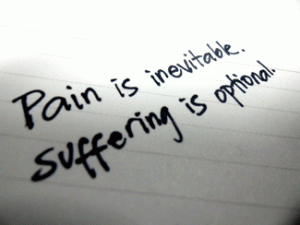 Anyway, there was a young man who came to the deli counter and asked me what I wanted. I told him a ½ lb. of the fried gizzards and a ½ lb. of the fried chicken livers. I asked him how he was doing and he said “great.” I replied “Yep, it’s always a great day if you can put two feet on the side of the bed when you get up and not have any pain.” His response surprised me. He replied “It’s a good day anyway.” I went away thinking what a positive attitude to life this young man had. Much more wisdom then I had at his age. He was absolutely right. Life is good anyway, regardless of all the pain and suffering.
Anyway, there was a young man who came to the deli counter and asked me what I wanted. I told him a ½ lb. of the fried gizzards and a ½ lb. of the fried chicken livers. I asked him how he was doing and he said “great.” I replied “Yep, it’s always a great day if you can put two feet on the side of the bed when you get up and not have any pain.” His response surprised me. He replied “It’s a good day anyway.” I went away thinking what a positive attitude to life this young man had. Much more wisdom then I had at his age. He was absolutely right. Life is good anyway, regardless of all the pain and suffering.
Time for Questions:
How do you cope with the pain and suffering in your life? How have you prepared your children to deal with the pain and suffering that they will experience? Do you agree that we can still experience joy and happiness regardless of our pain and suffering? Do we have to deny reality to accomplish this?
Life is just beginning.
“Should you shield the canyons from the windstorms you would never see the true beauty of their carvings.” ― Elisabeth Kübler-Ross
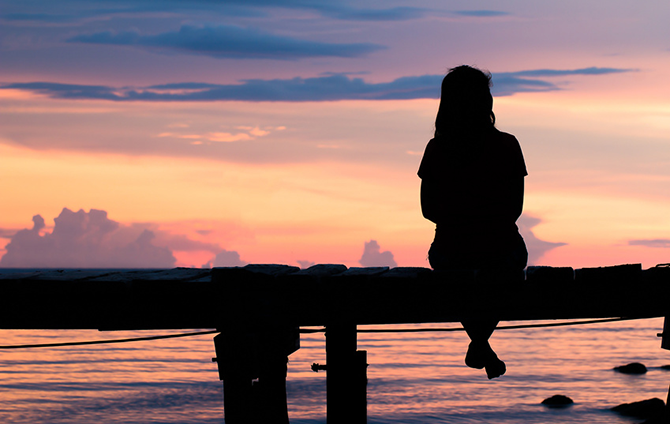




 I come back into myself and say, “Let’s take a walk.” It is a beautiful day and a beautiful town, and everyone likes the idea. We pay our respective bills, head to the bathrooms, and meet outside. I suggest we walk the path alongside the river to PD Pappy’s than turn left onto Main Street where we can walk by the various tourist shops. We head to an old antique store that we last visited almost a year ago to the day. We spend a good hour or so in the store. We see oodles of things that bring back memories from our childhoods, our old dreams and our wish-we-had-done that pasts. We leave having bought nothing except a wistful yearning for the “Good Old Days.” Pre-Trump. Pre-Covid. Pre-Climate Change. Pre-Divisive Partisanship. A time when we could still believe in the American Dream.
I come back into myself and say, “Let’s take a walk.” It is a beautiful day and a beautiful town, and everyone likes the idea. We pay our respective bills, head to the bathrooms, and meet outside. I suggest we walk the path alongside the river to PD Pappy’s than turn left onto Main Street where we can walk by the various tourist shops. We head to an old antique store that we last visited almost a year ago to the day. We spend a good hour or so in the store. We see oodles of things that bring back memories from our childhoods, our old dreams and our wish-we-had-done that pasts. We leave having bought nothing except a wistful yearning for the “Good Old Days.” Pre-Trump. Pre-Covid. Pre-Climate Change. Pre-Divisive Partisanship. A time when we could still believe in the American Dream.
 As we walk down main street, Roger tells me that he has seen a show recently that looks at the symbolism in the Catholic Church with a deep sense of skepticism. He asks me if I think the Catholic belief in Jesus would be much different if Jesus had been garroted or beheaded rather than crucified. I confess that I have never thought about this question, but I do find it intriguing.
As we walk down main street, Roger tells me that he has seen a show recently that looks at the symbolism in the Catholic Church with a deep sense of skepticism. He asks me if I think the Catholic belief in Jesus would be much different if Jesus had been garroted or beheaded rather than crucified. I confess that I have never thought about this question, but I do find it intriguing. It is now almost three hours since we met for dinner. We are talked and walked out. I am ready for my afternoon nap. Karen wants to get back to her sewing. Jane is tired of listening to us and wants some peace and quiet. Roger is still thinking about God and whether there is other life in the universe. We both seem to have come to the same counter-intuitive conclusion that there is not. We are all alone in the universe except for a few Martians left over from the great Martian cataclysm.
It is now almost three hours since we met for dinner. We are talked and walked out. I am ready for my afternoon nap. Karen wants to get back to her sewing. Jane is tired of listening to us and wants some peace and quiet. Roger is still thinking about God and whether there is other life in the universe. We both seem to have come to the same counter-intuitive conclusion that there is not. We are all alone in the universe except for a few Martians left over from the great Martian cataclysm.



 Now suddenly your partner for one reason or another is gone. She or he passes away. You come back to your home after the funeral and well-wishers have left, and you are now alone. You are more alone than you have ever been in your entire life. You go from room to room and no one else is there. The bedroom is empty. The kitchen is empty. The living room is empty. You notice the picture of you and your spouse at your anniversary party hanging on the wall. It brings back memories and tears. Every day for many days, objects, thoughts, and reflections will bring back good times and bad times that you shared with your lover. You will reflect over and over again about these past times. No doubt you will feel remorse about some things that you did and wish you could undo. You will also miss the fun things that you enjoyed together and the many good times that you had together.
Now suddenly your partner for one reason or another is gone. She or he passes away. You come back to your home after the funeral and well-wishers have left, and you are now alone. You are more alone than you have ever been in your entire life. You go from room to room and no one else is there. The bedroom is empty. The kitchen is empty. The living room is empty. You notice the picture of you and your spouse at your anniversary party hanging on the wall. It brings back memories and tears. Every day for many days, objects, thoughts, and reflections will bring back good times and bad times that you shared with your lover. You will reflect over and over again about these past times. No doubt you will feel remorse about some things that you did and wish you could undo. You will also miss the fun things that you enjoyed together and the many good times that you had together.
 Each evening after dinner, we enjoy food, dancing, and music at the Playa Bonita restaurant. It is right on the beach and while enjoying shrimp cocktails, we watch the most beautiful sunsets I have seen anywhere. As night falls, a band or singer will begin entertaining our group. Evalia loves to dance and will make sure that we all have a spin with her on the dance floor. The dance floor is outside where we eat. Almost always the weather is balmy and comfortable. Infrequently one might need a shawl or a sweater but an active time on the dance floor will mitigate any night chills.
Each evening after dinner, we enjoy food, dancing, and music at the Playa Bonita restaurant. It is right on the beach and while enjoying shrimp cocktails, we watch the most beautiful sunsets I have seen anywhere. As night falls, a band or singer will begin entertaining our group. Evalia loves to dance and will make sure that we all have a spin with her on the dance floor. The dance floor is outside where we eat. Almost always the weather is balmy and comfortable. Infrequently one might need a shawl or a sweater but an active time on the dance floor will mitigate any night chills.









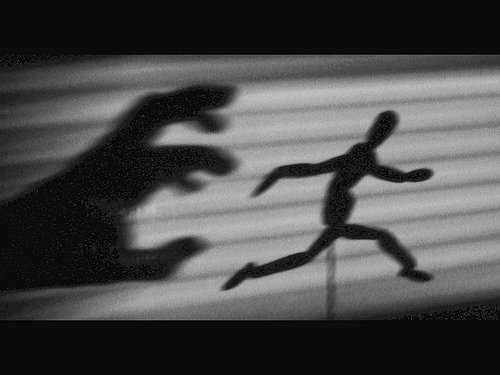

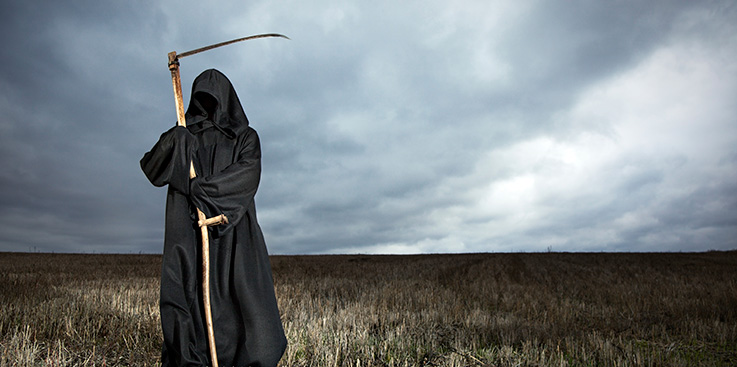

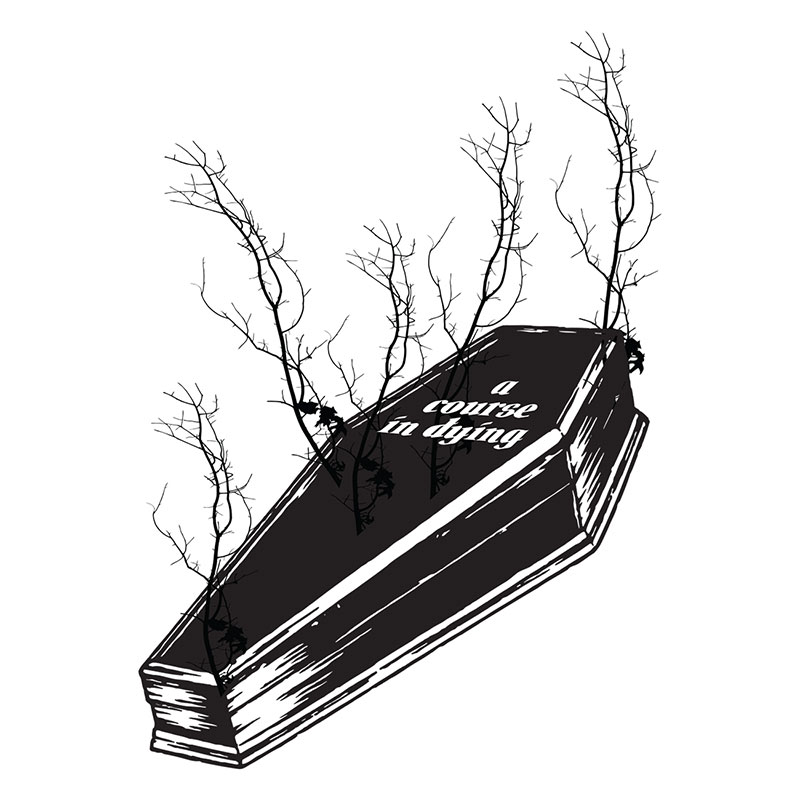



 On Tuesday and Wednesday along with my good friend Vic Ward, I attended the 52nd Nobel Conference which was titled: “In Search of Economic Balance.” It featured many illustrious and highly respected economists such as: Dan Ariely, Orley Ashenfelter, Paul Collier, Deirdre McCloskey, John List and several other well-known economists. After every lecture, there was a panel discussion where the speaker and several of the other economists had a chance to discuss and interact. Following these discussions, my friend and I debated, discussed and summarized what we thought were the most important points of each lecture. I attended eight lectures, six panel discussions and numerous discussions each evening with Vic.
On Tuesday and Wednesday along with my good friend Vic Ward, I attended the 52nd Nobel Conference which was titled: “In Search of Economic Balance.” It featured many illustrious and highly respected economists such as: Dan Ariely, Orley Ashenfelter, Paul Collier, Deirdre McCloskey, John List and several other well-known economists. After every lecture, there was a panel discussion where the speaker and several of the other economists had a chance to discuss and interact. Following these discussions, my friend and I debated, discussed and summarized what we thought were the most important points of each lecture. I attended eight lectures, six panel discussions and numerous discussions each evening with Vic. On the way back from St. Peter, we stopped Jim’s Apple Farm when we saw a sign that said “Next exit, Minnesota’s largest candy store.” I bought several treats for Karen and the guys at the library in Frederic. Jim’s lived up to its billing. It may just be the largest candy store in the US. It is certainly the largest candy store I have ever been in.
On the way back from St. Peter, we stopped Jim’s Apple Farm when we saw a sign that said “Next exit, Minnesota’s largest candy store.” I bought several treats for Karen and the guys at the library in Frederic. Jim’s lived up to its billing. It may just be the largest candy store in the US. It is certainly the largest candy store I have ever been in. Karen having spent thirty years of her life in Home Health Care is much better grounded and infinitely more knowledgeable than I am in this area. Many of the ideas in the conference sessions were basic for her but for me the opposite was true. I had my eyes opened and many of my concepts about conditions such as Dementia have now been thrown out the window. I cannot begin to describe how much I learned at this conference and how valuable the ideas were for me.
Karen having spent thirty years of her life in Home Health Care is much better grounded and infinitely more knowledgeable than I am in this area. Many of the ideas in the conference sessions were basic for her but for me the opposite was true. I had my eyes opened and many of my concepts about conditions such as Dementia have now been thrown out the window. I cannot begin to describe how much I learned at this conference and how valuable the ideas were for me.










